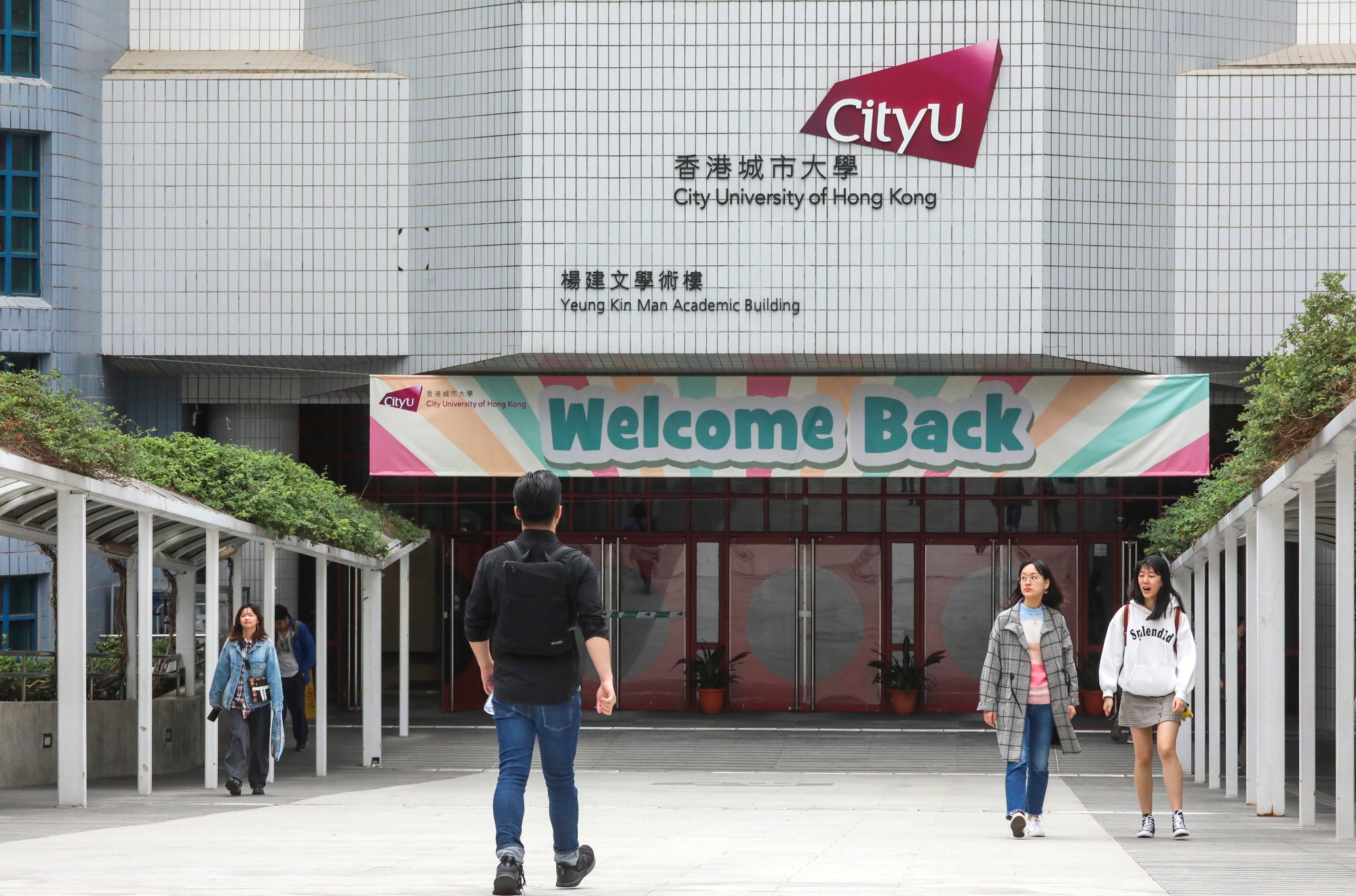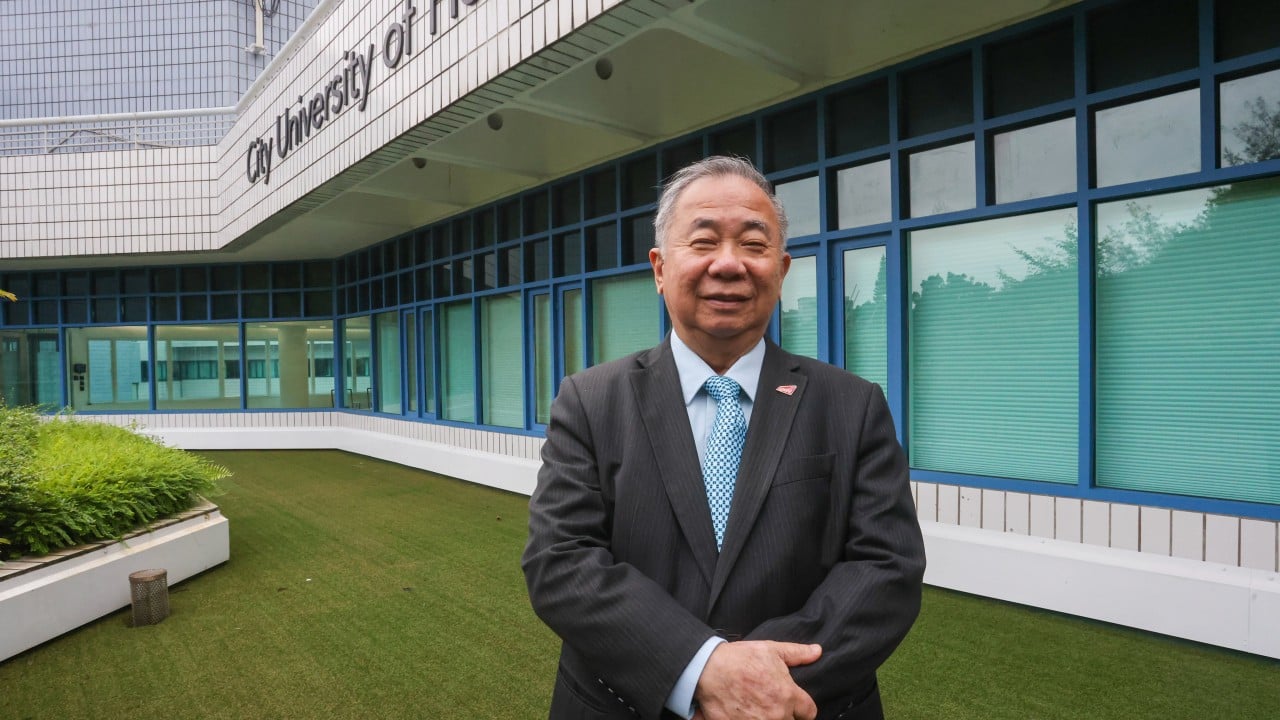City University of Hong Kong (CityU) may take four to five years to double the non-local undergraduate intake allowed under a newly expanded quota, its head has stressed, warning that rushing to achieve the goal will leave students suffering from a lack of adequate facilities.
Professor Freddy Boey, who has been leading CityU for a year, said mainland Chinese students would inevitably continue to make up most of the non-local students in the city’s tertiary institutions.
The Singaporean added he was going to make sure hostels and teaching spaces were ready before reaching the new quota, which was announced by Chief Executive John Lee Ka-chiu last October. Lee said the non-local student quota for programmes at publicly funded institutions would double to 40 per cent in September this year.
“If you rush this, all students will suffer. Because where will they stay? Do you have space for them to study?” Boey said.
“It is important that every student benefits rather than loses out because a lot of students come in.”
According to the new policy aimed at developing Hong Kong as an international postsecondary education hub, the number of non-local undergraduates will be increased to 30,000 from 15,000.
Out of the 14,756 non-local undergraduates enrolled in the public universities this school year, 10,358, or 70 per cent, are from the mainland, official figures show.
Boey said that while it was inevitable that mainland students took up most of the spots, his 30 -year-old university had been proactively recruiting students from other Asian and European countries for diversification purposes.
“There is a never-ending source from the mainland and that’s fine … the number of students from there will always be high. But like I said, I can increase the number of overseas students,” he said.

CityU has the second lowest proportion of mainland undergraduates among eight public universities, with 1,137, or 60 per cent, of the 1,907 non-locals there coming from across the border.
Boey revealed the university was looking for a property it could rent as a dormitory before bringing in more non-locals, giving no further details.
CityU’s new student hostel in Ma On Shan, set to be completed in September, is expected to have more than 2,000 beds.
Mainland scholars at the city’s public universities have also outnumbered locals in the past two school years.
Of the 806 CityU academics, 322, or 40 per cent, are mainlanders and only 183, or 23 per cent, are locals, according to official figures this year.
Boey said his university’s hiring policy was based on applicants’ merits and not their birthplaces.
“But if all things being equal, I would love to have Hong Kong-born professors,” he said.
Boey, who was the deputy president of the National University of Singapore between 2018 and 2022, said that running a tertiary institution in Hong Kong was easier than that in his hometown.
He said it was a good idea to have the University Grants Committee, which allocates funding to the institutions, as it played a neutral role between the government and the universities. He even told Singaporean ministers to learn from Hong Kong.
“In Singapore, it is pretty top down … but in Hong Kong, universities are free to do research in whatever areas they have, of course, within the given financial limit,” he said.

But he said he was working to find revenue to support research in Hong Kong, noting it was “slightly unrealistic” to expect all resources to come from authorities. Universities in Singapore relied solely on the government.
Boey was also amazed by the donation culture in Hong Kong, saying people regarded it as giving back to society.
“People [donors] have a very healthy respect for universities and they understand that this is investment,” he said.
Boey said he had made use of his network over the past year to sign different agreements with prestigious institutions worldwide and even “knocked” at the door of some universities in a bid to foster academic exchange.
“We need to tell people that we are not so bad,” he said.
Recently, CityU formed partnerships with England’s University of Cambridge and University of Exeter, as well as CentraleSupelec at France’s Paris-Saclay University.
According to a memorandum of understanding with Cambridge’s Lucy Cavendish College, CityU students will have the opportunity to study there for one year as part of their undergraduate programme.
“Education is global, you cannot teach the world in a classroom. don’t send them overseas just to attend lectures but also to experience,” he said.
When asked if he would mend the ties with the CityU student union, which was ordered to vacate and return its premises in 2022 for failing to submit its audit report for years, Boey said he was unable to comment because he was not at the university at the time.
Boey also said he could not comment on authorities’ decision to boost patriotic education at schools and universities after the 2019 social unrest.
“We should leave this discussion to the Hong Kong government and Hong Kong society,” he said.


